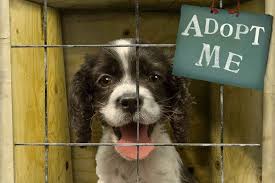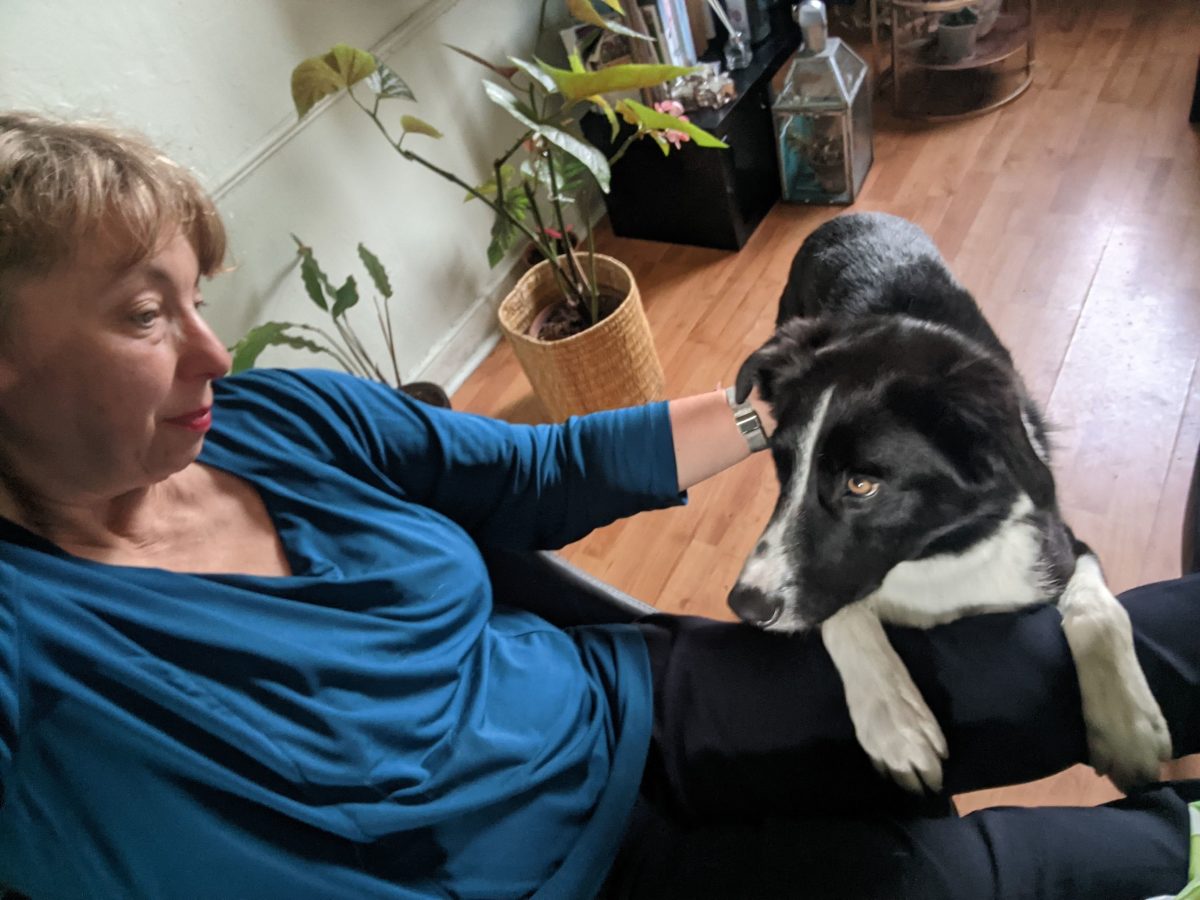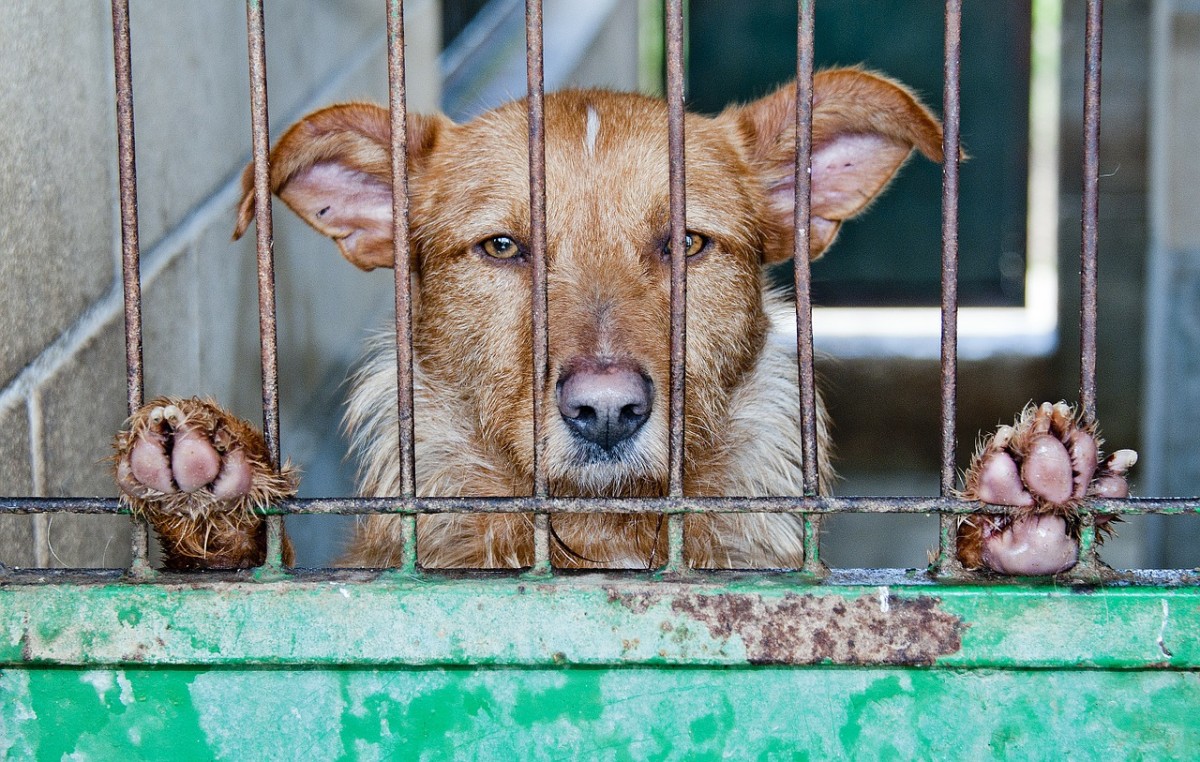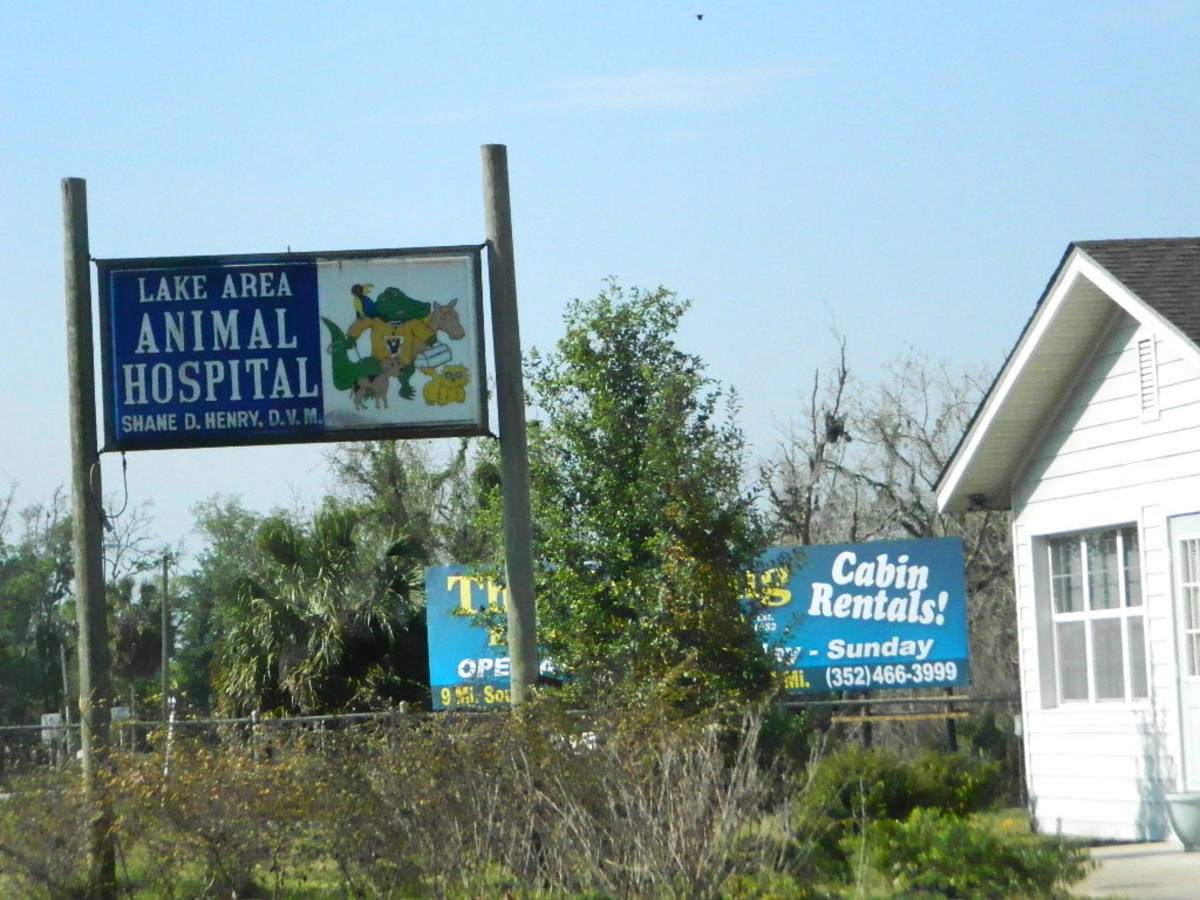Adopt A Pet...At Your Own Risk; Sensible Tips and Advice Before Adopting

Disclaimer: I Love Animals!
I began receiving a negative response from readers after completing this hub so I felt it necessary to begin another way...a disclaimer I guess: I am not against pet adoption. There are numerous sites and resources on why you should adopt. Since there are so many resources out there in favor of, I wanted to write something, not only based on my experiences, but in general about the reality of adopting a pet. Truth is, it's not always the best choice for everyone. I'm simply portraying the other side of this so before you demonize me, I love animals.
Be prepared...be very prepared
You really don't know what you get when you adopt an animal. Are you up for anything? It is not unlike buying a used car. You may not know exactly what the pet's past is and that can deeply effect any animal. It can be completely worth it or you can be facing a lot of surprise issues that come up.
If you notice the little information cards located on the animal's enclosures at shelters, it often has it's positives listed. Yes, many dogs will have warnings against kids and the warning is there for a reason- take heed. Here's what you should know about that:
- Make sure you talk with someone knowledgeable at the shelter or rescue organization. Many will have extra info that's not listed on the cards. Sometimes they will have someone who specializes in certain breeds of dogs or rabbit adoptions, etc.
- If you plan on being in an area with kids, do not adopt the pet that has a warning. This means if you live in a neighborhood where kids play often or a park or you have grandchildren, well, you name it...tell me where there are absolutely no kids! I have a dog that had 6 months bad experience with kids and he is now 10. We have no freedom with him being around kids at all. I have two small kids trained around him, but must be closely supervised and the only reason I did not get rid of him (we had him before we had kids) is because he is a chihuahua and they are not likely/not able to maul a kid. Bite? Yes, but not much damage. It's been a lot of work.
- If they do not like kids, they could have long-term trust issues and can turn on anyone, even their adult owner.
- You will never/ highly unlikely be able to train this out of them no matter how young- like I said, our dog was 6 months old when we got him and being around a wild 2 and 4 yr old during that time, stuck with him.
- You will be held liable if your dog attacks a kid. If a dog doesn't like a certain group, like kids, then he doesn't like fast movements or loud sudden noises- this can come in many packages other than kids. We have a loud adult male friend and our dog despises him.
- This won't be a "project" to work on him- it's part of his instincts now so don't take this project on. I have to say, I wish we hadn't taken on our project dog- it worries me everyday with our kids, it takes a lot of extra work to have him out of his kennel with the kids around.
- Never get an animal because you feel sorry for it. I'd have the world's largest zoo if this were the case. This is no different than impulsive buying based on a whim, which rarely turns out good.
- If you treat this animal great, they can still be unpredictable. When a dog has been abused (abuse by their definition, which can be as insignificant as being overly stressed) it will resort to those instincts first- it will not care about being socialized or being social. Those early experiences are always with them.
Up For Adoption
Here are some reasons an animal comes to a shelter, and things you need to think about before adopting:
- Abused, found neglected or abandoned. This animal will likely have some psychological and physical issues so be very prepared...and patient. Since they were treated/ or lived like a wild animal having to rely on instinct, they will have strong instincts to protect themselves and likely be fearful. Some of these things you will be able to train out and gain trust, but it's not a guarantee.
- Child did not care for animal so parents brought it in. Hopefully you know children can not care for an animal without a lot of assistance, but this happens often with the small animal groups like rabbits.
- Unable or unwilling owners not training them. Pets come with no manners and training the is necessary. Unfortunately many of these type of pets are not, and are difficult to potty train. Be prepared! Patience and a great carpet cleaner are a must.
- Owners are moving, can't keep pet. Some people don't want to take their dog to a new houses so as to keep the house clean. Ridiculous, yes. These animals may also have potty issues.
- Money, lack of or health problems of animal cost too much. In our economy, we really have to consider our living and money situation changing at any moment. Pets are a commitment of time and years.
There are other reasons such as an owner giving up her dog's puppies, but they may not be healthy as the owner obviously didn't take precautions against the dog getting pregnant in the first place. Allergies can be another one...truly sad. I mention all the above points because I really want people to consider their adoptive pet's background.
Getting Jacked!
I added this section in as an afterthought and it really is important! One main reason people find themselves discouraged by their pets or why many are given up is we all know, or can at least predict, how expensive vet care is. Recently I compared two different vets within miles of each other and one wanted $225 for spaying a rodent.
Unfortunately after only checking with this particular vet clinic a few years ago, we gave our guinea pig, who was biting, to a friend of ours who knew and loved these creatures. We could not afford to neuter him, guessing his biting was due to hormone changes, and we did not compare prices. And now considering this for our rabbit, I decided to shop around and that's where I came up with the $225 compared to the same procedure at a different clinic costing $73. I wish I had shopped around for our guinea pig, but that's why I stress this...shop around for vets. I've found that more out-in-the-country type of vets charge less. That's my experience living close to a city.
It's very discouraging that vets can have such a range in prices and charges, not unlike the used car experience. I believe it also contributes to many people giving up a pet. Too bad...


Mileage
Mileage and appearance have nothing to do with the health of a car. It really depends on the prior owner(s) and the manufacturer. As in pets, it depends on the prior owner(s) and the health of the environment and parents from which it came from. Most of the time, we know nothing about this when adopting a used car :-) or a pet.
Many of the cute, cuddly baby animals at a rescue center or humane society come from an unsanitary, awful environment and their parents were likely unhealthy. My dog being 6 months old not only came from a bad situation with kids, but came from someone who fed him only lunch/deli meats and treats. Because of this, we have to feed him special formulated dog food and absolutely no human food or he pukes it up- did I mention he has ulcers too?
While I say there are no health guarantees with any animal from a breeder, pet store, or wherever, it is almost a guarantee that your rescue animal will have health issues. I would put a larger than 50/50 chance on it. In fact rescue organizations compile statistics and about 30 up to 50% have health issues and about that many have never been to a vet...no vaccinations. 96% have not had any obedience training.

Never a Deal
There is no such thing as a "deal" when it comes to rescuing an animal. I hear people say, the animals cost less than a pet store and are usually neutered or spayed. When adopting an animal, PLEASE consider the cost of very possible vet bills in the future. What can seem like a good deal initially buying the pet from a shelter, may not pay off in the long run if you are concerned about money.
Even as well intentioned as humane societies or rescue centers are, it is difficult to keep an overly populated area with animals clean and completely sanitary. One example of this was recently my young daughter and I went to a large pet chain store and they had a rescue group there with animals in open exercise pens right in the middle of the store. We walked by and they were very cute- lots of puppies! Many kids were petting them. I watched for a while adoring them from a distance.
The owner of this rescue agency was practically auctioning off these animals. I asked how much for this one puppy...out of curiosity, and she says $300. She was extremely busy quoting prices to other people so when we were done with our shopping, I came back around and asked her again, knowing she did not remember me and she quoted $200 for the same puppy! Used cars!!! If you think people at rescue places are in it for the animals, think again. They are very compassionate...about money!
This story doesn't end here: My daughter reached over to pet one of the puppies and it jumped onto her, scratching next to one of her eyes. the very next day she woke up with her eye pussing yellow ooze! Yep, bad eye infection.These dogs were out for everyone to pet. I read some info laid open in one of their files and one of the puppies had ringworm...out in the open for kids to pet. What a disgrace!


The Pet Store
You will run into the same problems with a pet store as well. I would always suggest the best place to get an animal is from a reputable breeder, not just any breeder. One who has records, gives health info and guarantees.
Reputable breeders will breed out behavioral problems and typical health issues as well. I went to look at a breeder's baby rabbits and she literally opened up her garage to show me tons of baby rabbits in cramped cages right next to a large cage of birds who freely pooped wherever it happened to land. This was not a reputable breeder!
I've had horrible issues with pet stores and the health of animals (a puppy with Giardia and a rabbit that died shortly after getting it). Just as a humane society, the pet store often does not know where the animals come from and what conditions. Pet stores are in it for money and I have known many privately owned or non-profit rescue agencies who also do it for money. Sad, but true.
When dealing with either a pet store or rescue agency, you need to know used car salesman lingo.
- Ask detailed health questions. Deworming, how were the parents, who do you buy from, where did they come from. If they can't give you details or always put a positive spin on it without truly answering your questions, walk away.
- Know how to determine how old the animal is. Often pet stores get in animals way too young to be weaned from their moms.
- Never get the animal if they said they just got it in. I went into the local human society and asked how old a rabbit was and they said this rabbit was healthy, yet only got it the day before. How do they truly know if it's only been there that short of a time. I also got our rabbit from a pet store when they had just come in. They explained to me if they see a rabbit that looks sick they take it in the back for medicine and isolate it. Well that's great if the animal has been in their care for a few days.
- Be in investigative mode. Never make an impulsive pet buy, which most people do. I did recently with our (dead)rabbit. Now I am doing my research. I am learning what to look out for with health concerns and who is reputable to buy form. If what they say doesn't seem right or feel right, walk away. trust your instincts.
- Google it! Google a lot of info about the type of pet you want to get. Then google the pet store for reviews- if you choose to purchase a pet from a store. The pet store I bought from must have a record for worst reviews! Ugh, What a mistake!
My Experience
- Alley Cat Pet Center - Vancouver, WA
6 Reviews of Alley Cat Pet Center "My friend bought her kitty here and he seemed just fine. A wonderful little boy, everybody loved him. Soon he died of feline leukemia"


Who a Rescue Pet is NOT For!!! Please Read!!!
- Not for small kids at all. Even if they do not have a warning against kids on their profile, rescue animals are unpredictable because you do not know their past. You would not let a stranger into your home or someone you didn't know.
- Not for first timers- first timers for pets will be in over their head anyway, having a new pet to learn about. For example if it's their first time owning a dog or a rabbit, a rescue option is not good!
- Someone without good resources. Rescuing a pet, you will need to have a good vet picked out and back up options for your rescue pet's nuances they come with...they may not like cats so if you have one, you'll have to separate them. Your rescue pet will come with some baggage so be prepared...financially too.
- Rescuing just to rescue. Don't make rescuing your only option. There is a certain status award for the kind, giving, loving people who take in a pet. Everybody wants to give you the Humanitarian Award of The Year for adopting a pet. In psychology, we were taught that charity is also selfish. People do it to feel good, therefore they're doing for their own inner award. I'm not knocking charity, but I'm asking you to question your true intentions with rescuing.

Feel Good Anyway
If you don't adopt a pet, there are many ways to support pets who need adopting. Volunteering your time and money are just a couple of ways.
Just Do It
Adopt an animal if you have the time, resources, and flexibility. Most likely you would need to treat this animal as a special needs pet, or family member. I know a few people who never had kids and their animals are their kids- they make wonderful adoptive pet owners. There are lonely seniors that would benefit, healthwise, from owning a pet. People with older children who know how to be around animals.They make great owners as well. There are many people whom an adoptive pet would work for and they will most likely be the ones who do it for the sake of providing a great home especially with that animal in mind.

You won't find a shortage of info on reasons to adopt...
- Top Five Reasons to Adopt : The Humane Society of the United States
Thinking of getting a new pet? Here's why you should adopt, not shop.






